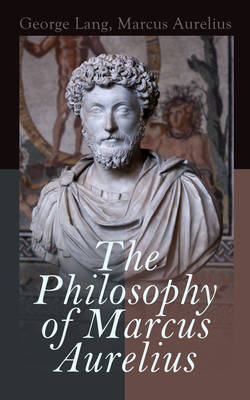The Philosophy of Marcus Aurelius

Реклама. ООО «ЛитРес», ИНН: 7719571260.
Оглавление
Marcus Aurelius. The Philosophy of Marcus Aurelius
The Philosophy of Marcus Aurelius
Table of Contents
BIOGRAPHICAL SKETCH. OF. MARCUS AURELIUS ANTONINUS
THE PHILOSOPHY. OF. MARCUS AURELIUS ANTONINUS
THE THOUGHTS. OF. MARCUS AURELIUS ANTONINUS
I
II
III
IV
V
VI
VII
VIII
IX
X
XI
XII
INDEXES
INDEX OF TERMS
GENERAL INDEX
Отрывок из книги
George Lang, Marcus Aurelius
e-artnow, 2020
.....
[A] Eusebius (v. 5) quotes Tertullian's Apology to the Roman Senate in confirmation of the story. Tertullian, he says, writes that letters of the emperor were extant, in which he declares that his army was saved by the prayers of the Christians; and that he "threatened to punish with death those who ventured to accuse us." It is possible that the forged letter which is now extant may be one of those which Tertullian had seen, for he uses the plural number, "letters." A great deal has been written about this miracle of the Thundering Legion, and more than is worth reading. There is a dissertation on this supposed miracle in Moyle's Works, London, 1726.
During the time of Antoninus Pius and Marcus Antoninus there appeared the first Apology of Justinus, and under M. Antoninus the Oration of Tatian against the Greeks, which was a fierce attack on the established religions; the address of Athenagoras to M. Antoninus on behalf of the Christians, and the Apology of Melito, bishop of Sardes, also addressed to the emperor, and that of Apolinarius. The first Apology of Justinus is addressed to T. Antoninus Pius and his two adopted sons, M. Antoninus and L. Verus; but we do not know whether they read it.[A] The second Apology of Justinus is entitled "to the Roman Senate;" but this superscription is from some copyist. In the first chapter Justinus addresses the Romans. In the second chapter he speaks of an affair that had recently happened in the time of M. Antoninus and L,. Verus, as it seems; and he also directly addresses the emperor, saying of a certain woman, "she addressed a petition to thee, the emperor, and thou didst grant the petition." In other passages the writer addresses the two emperors, from which we must conclude that the Apology was directed to them. Eusebius (E.H. iv. 18) states that the second Apology was addressed to the successor of Antoninus Pius, and he names him Antoninus Verus, meaning M. Antoninus. In one passage of this second Apology (c. 8), Justinus, or the writer, whoever he may be, says that even men who followed the Stoic doctrines, when they ordered their lives according to ethical reason, were hated and murdered, such as Heraclitus, Musonius in his own times, and others; for all those who in any way labored to live according to reason and avoided wickedness were always hated; and this was the effect of the work of daemons.
.....